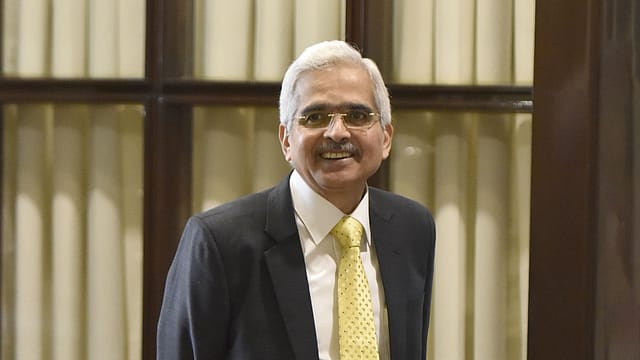Indian fintech will be 13% of global industry by 2030: RBI Guv
ADVERTISEMENT

In the backdrop of the Global Fintech Fest (GFF) 2023, which is experiencing a threefold surge in participation as against the previous year, Shaktikanta Das, governor of the Reserve Bank of India (RBI) took the stage to applaud the fintech sector which is on the brink of a significant transformation.
Emphasising on the crucial role that innovation plays in reforming financial services, he says, "Innovation is the bedrock of the fintech industry."
In his address, he notes that customer-centricity, governance, and self-regulation are critical for the fintech ecosystem to be stable and future-ready.
The fintech sector in India had been fledgling for the past couple of very rough years and has only very recently caught a break. In fiscal year 2023, a few significant venture-funded lending businesses swung into profits, while some are looking for new equity funding rounds to strengthen their capital reserves.
The governor made use of the GFF platform to urge and encourage the fintech companies to establish a self-regulatory organisation or SRO by themselves. He further provides assurance of engagement on behalf of the Reserve Bank.
"It (SRO) will give fintechs an opportunity to voice your requirements more frequently to the SRO. The other advantage is that all the aspects of regulation will not be burdened on the Reserve Bank," he adds.
He also expressed hope that the fintech space would have either formed or be near to launching an SRO by the time the next GFF event in 2024 comes about.
In fact he says, "I am saying next year as an outer limit but I am sure if we work together, we can do this even faster."
RBI deputy governor T Rabi Sankar also highlighted the urgent need for self-regulation in the fintech industry at the event on Tuesday. The central bank's former position on the need to regulate fintech companies has evidently shifted.
The RBI has cracked down on several facets of the fintech sector over the past year, which had been using coercive methods to expand its business. The RBI has raised concerns about data privacy, aggressive data collection methods, and developing products that go beyond legal requirements.
"They (fintech companies) need to evolve industry best practices, privacy and data protection norms in sync with the laws of the land, set standards to avoid mis-selling, promote ethical business practices, transparency of pricing, etc," Das says while addressing the industry's concerns.
However, he urges fintech firms not to look at it as an obstacle and instead points out that at times the regulator needs to step in to protect consumers and ensure there is consumer centricity in governance.
Global potential
Predicting a promising future for the fintech space, Das says, "Indian fintech is expected to generate $200 billion in revenue by 2030, contributing 13 percent to the global fintech revenue."
This growth forecast highlights the potential and vitality of India's fintech sector on the international stage.
While providing a global perspective on the fintech sector, the RBI governor observes that although the industry generates an astounding $245 billion in revenue annually, it still only accounts for 2% of the total revenue from financial services worldwide.
However, he emphasises that India is set to play a crucial role in this narrative while attributing this growth to the increasing adoption of digital payments, the growth of the digital lending market, and the rise of insur-tech and wealth-tech companies.
"The coming years hold immense promise for fintech innovation and growth," he concluded.